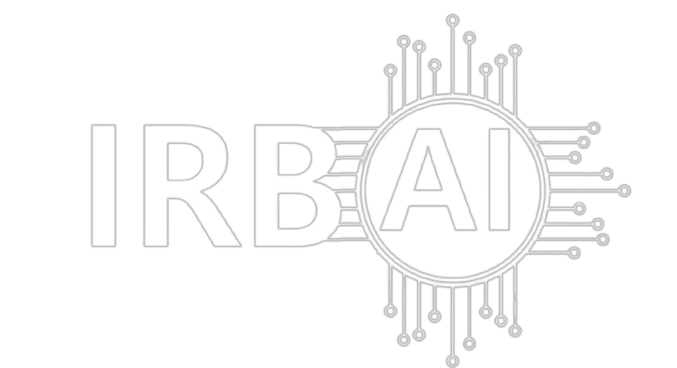IRBAI’s Governance Structure
IRBAI’s governance structure is designed to ensure that our decisions are inclusive, fair, and responsive to the evolving needs of global AI governance. Our governance framework is based on six key pillars: The Chair, The Council, Executive Board, Heads of the Departments, Audit Committee and Enforcement Committee.
The Chair
The Chair provides overall leadership to IRBAI’s governance structure. This includes guiding the Executive Board, Council, and committees to ensure that their work is aligned with the strategic objectives of the organization. The Chair plays a pivotal role in fostering collaboration, transparency, and effective decision-making.
The Chair holds the Executive Board, Advisory Council, and committees accountable for their responsibilities and ensures that IRBAI operates transparently and in line with its ethical principles.
The Chair leads Board meetings and ensures that discussions stay on track, with clear agendas and decisions. The Chair also serves as the Head of the Council and therefore ensures that the Council’s advice is comprehensive and considers the perspectives of industry, academia, governments, and civil society.
The Chair serves as the primary representative of IRBAI in key global AI discussions, international meetings, and policy dialogues. The Chair plays a key role in engaging with international organizations, governments, and AI-focused entities to ensure that IRBAI’s mission is recognized globally.
Advisory Council
The Council of the International Regulatory Body for AI serves as a pivotal advisory and representative body. It is composed of distinguished experts, industry leaders, and key stakeholders who provide essential guidance and strategic insights to the Executive Board. The Council ensures that IRBAI’s policies and initiatives are well-informed, balanced, and reflective of the diverse perspectives within the AI community.
Council Structure:
The Advisory Committee within the Council is composed of thought leaders in the AI field, including academics, regulators, ethicists, and industry professionals. The committee serves to guide the Executive Board on AI regulations and ethical considerations, offering high-level expertise on the societal implications of AI technologies.
The Council also includes stakeholder representatives who ensure that IRBAI’s policies account for the needs of various sectors, such as industry, government, and the public. These representatives bring the perspectives of their respective sectors into the policy-making process, ensuring that AI regulations reflect real-world needs and global standards.
The Board of Directors
The Board of Directors is the decision-making body responsible for setting IRBAI’s strategic direction and overseeing its operations. Members of the board represent a diverse group of policymakers, legal experts, academics, and industry leaders from around the world. The Board of Directors is responsible for providing guidance and leadership in shaping global AI policies.
- JOANNA ACCORDI – Chief Executive Officer (CEO) –The CEO leads the overall vision and direction of IRBAI. The CEO ensures that all operational goals are aligned with the organization’s mission and represents IRBAI in high-level international discussions about AI regulation.
- IZA KOJTYCH –Chief Financial Officer (CFO)– Leads the Finance Department and Audit Department, managing IRBAI’s financial strategy and ensuring financial accountability.
- JAIN WU – Chief Technology Officer (CTO) –Leads the Technology Department, overseeing research and innovation in AI technology within IRBAI.
- MICHELLE PATEK– Chief Information Officer (CIO) – Oversees the IT Department, ensuring secure and efficient information systems.
- NICOLAJ STRAUSS– Chief Information Security Officer (CISO) –Leads Cybersecurity Department.
- ANITA WOJTANOWICZ– Chief Certification Officer (CCertO) – Leads the Certification Department, ensuring the standardization and certification of AI technologies.
- Chief Policy Officer (CPO) – Oversees the Regulations Department, ensuring that IRBAI’s policies are comprehensive, timely, and globally aligned.
- Chief Legal Officer (CLO) – Leads the AI Legal Department and the Legal Affairs Department, ensuring compliance with global laws and regulations.
- Chief Compliance Officer (CCO) –Ensures organizational compliance with international standards through the Compliance and Risk Management Departments.
Heads of Departments
Each department within IRBAI is led by a Department Head who reports directly to the Executive Board. These department heads play an essential role in ensuring the efficiency, effectiveness, and coherence of IRBAI’s activities.
- Head of Audit Departments (HAD) –Regional Audit Units
- Head of Enforcement Department (HED) – Oversees the Enforcement Department, ensuring compliance with IRBAI’s regulations and policies.
- Head of Industry Communication Department (HICD) – Manages communications with industry stakeholders, ensuring transparency and engagement.
- Head of International Relations Department (HIRD) – Leads global partnerships and collaborations with international organizations, governments, and regulatory bodies.
- Head of Public Relations Department (HPRD) – Manages the public-facing communications, ensuring that IRBAI’s messages are clear and well-received by the global public.
- Head of Client Service Department (HCSD) – Ensures effective customer support for IRBAI’s partners, stakeholders, and clients.
- Head of Human Resources (HHR) – Manages personnel and the Training Department, ensuring that IRBAI has a skilled, diverse workforce. Oversees the Internship Program.
